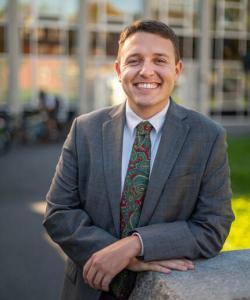Our Research Approach
The Truman School of Government and Public Affairs focuses its research strategy on thematic strengths that cross traditional disciplinary and field boundaries. Faculty and students form collaborative communities that explore shared topics—such as democracy, social policy, international conflict and security, technology and governance, state and local government, and energy/environmental policy—from diverse perspectives. This interdisciplinary approach fosters innovative research that addresses complex public challenges with real-world impact.
We bring growing expertise to the intersection of artificial intelligence, technology, and governance. Faculty research explores how emerging technologies influence public policy, administrative decision-making, and public trust in government. Using behavioral, experimental, and data-driven approaches, scholars examine issues such as algorithmic bias, the ethical use of AI in public programs, access to technology, and the role of technology in shaping policy outcomes. This work enhances understanding of how governments can effectively and responsibly integrate technology into governance and participation.


We have strong, interdisciplinary expertise in the study of democracy. Faculty examine democratic institutions, voting behavior, public opinion, civic learning, and political representation across both American and international contexts. Their research blends institutional, behavioral, and normative approaches, offering insights into how democracy functions in practice and how it can be strengthened. This diverse scholarship provides a well-rounded understanding of democratic systems and challenges.












We offer growing expertise in environment and energy policy, with faculty examining how individuals, institutions, and governments respond to environmental challenges. Their research explores public attitudes toward climate and energy issues, the political dynamics of environmental policymaking, and how psychological and behavioral factors shape support for sustainability efforts. Through interdisciplinary approaches, this work provides insights into how policy can be designed and implemented to address complex environmental and energy problems effectively.

We have focused expertise in conflict and security, with faculty examining the causes, dynamics, and consequences of political violence and international conflict. Their research uses quantitative and formal modeling approaches to analyze topics such as interstate war, civil conflict, military alliances, and the strategic behavior of states and non-state actors. This work contributes to a deeper understanding of global security challenges and informs both academic and policy debates on conflict prevention, resolution, and human rights.




We have strong, interdisciplinary expertise in social policy, with faculty examining how public programs and policies impact health, education, economic mobility, and child and family well-being. Their research uses a range of quantitative and qualitative methods to analyze policy design, implementation, and outcomes, with a focus on access and effectiveness. Drawing from economics, political science, public policy, and social science, this work informs efforts to improve social safety nets and promote opportunity for underserved populations.








We have strong expertise in state and local governance, with faculty examining how political institutions, electoral systems, and administrative structures operate at the subnational level. Their research explores topics such as legislative behavior, bureaucratic performance, intergovernmental relations, and public service delivery. Using diverse methods, scholars analyze how governance processes vary across states and localities and how these differences affect democratic accountability and policy effectiveness. This work deepens understanding of the unique challenges and opportunities within state and local government.










